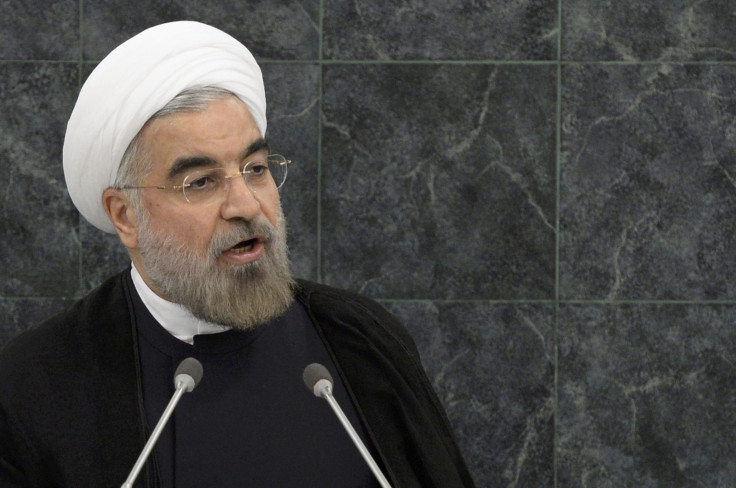Iran's Rouhani Faces Music As Sanctions Bite Harder, Is There A SWIFT Solution In The Works?

After years of bluster from former President Mahmoud Ahmadinejad, Iran appears finally to be facing the fact that economic sanctions have crippled its ability to do business within the global financial system.
Reflecting that newly sober outlook, Iran’s new president, Hassan Rouhani, last month addressed the United Nations General Assembly in New York in an attempt to soften the Islamic Republic's hostile relationship with the West and set the stage for its re-entry into a key organization that facilitates financial transactions across borders and allows modern nations to expedite payments.
Under Ahmadinejad, Iran constantly defied U.S sanctions and claimed that its economy was functioning fine without international business and that it had $100 billion in foreign exchange reserves to rely on, mostly oil money. But since the new government has been seated it has become clear that Iran is billions of dollars in debt.
Rouhani, it appears, has recognized, unlike his predecessor's demagoguery about financial independence, that the sanctions are squeezing the country’s finances to the brink of collapse.
Iran’s current exclusion from the global money transfer system SWIFT, which stands for Society for Worldwide Interbank Financial Telecommunication, is at the heart of the problem. SWIFT allows businesses to conduct quick and efficient transactions with each other, especially important for a country like Iran with its billions of dollars of oil money needing to get back to the country.
That reality prompted Amir Mohebbian, an Iranian journalist and adviser, to tell The New York Times in September, “We particularly want to be readmitted to the SWIFT system.”
Most of Iran's banks were prohibited from participating in the system after the government refused to suspend its nuclear enrichment program. And in July its situation become more grave after President Barack Obama upped the ante against Iran by announcing that sanctions would be placed against any company working with an Iranian company. That move effectively blocked SWIFT transfers from outside Iran back into the country.
The move cut off Iran from participating in the global financial and business worlds. Even small businesses that rely on parts or products from other countries have no way to pay for them, instead forced to resort to expensive middlemen that operate outside of Iran and try to game the sanctions one way or the other.
For example, Chinese banks based in Iran were enabling overseas transactions until the U.S. government decided to fine any banks working with Iranian businesses. The Bank of Kunlun was fined for being the first to breach the rules.
Some businesses, particularly Iranian firms, have fought the latest actions in court, arguing that they have been unfairly treated and should be exempt as they are not directly involved in Iran’s nuclear project. That argument has so far failed. While arguments remain about the use of SWIFT restrictions as a legitimate economic weapon, the proof is in the pudding and the nation is being squeezed.
Currently Iranian banks and businesses cannot reliably transfer money via the accepyed international standard and are forced t to schlep cash-stuffed suitcases across borders via couriers to institutions willing to risk doing business with them, according to a report in the New York Times.
Alternatively Iran can use the oil money to buy local products from its oil customers. This means that Iran’s supermarkets are packed full of Chinese produce, most of it bought for a premium price that is debited from accounts trapped in Chinese banks.
In light of these sanctions, Iran has begun open dialogue with the U.S., Europe and the United Kingdom to get the sanctions lifted. William Hague, the British foreign secretary, has said talks with Iran will take place next week. Also, European officials will meet with Iranian officials to discuss the regulation and observation of their nuclear programs by the Atomic Energy Agency board sometime next week, according to the Council of the European Union.
© Copyright IBTimes 2025. All rights reserved.






















